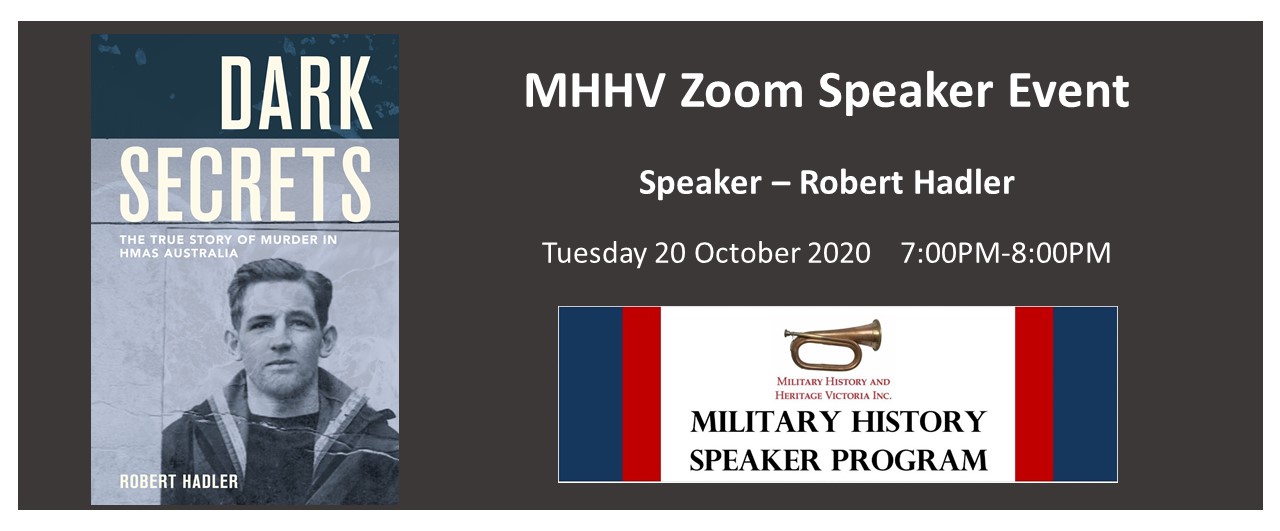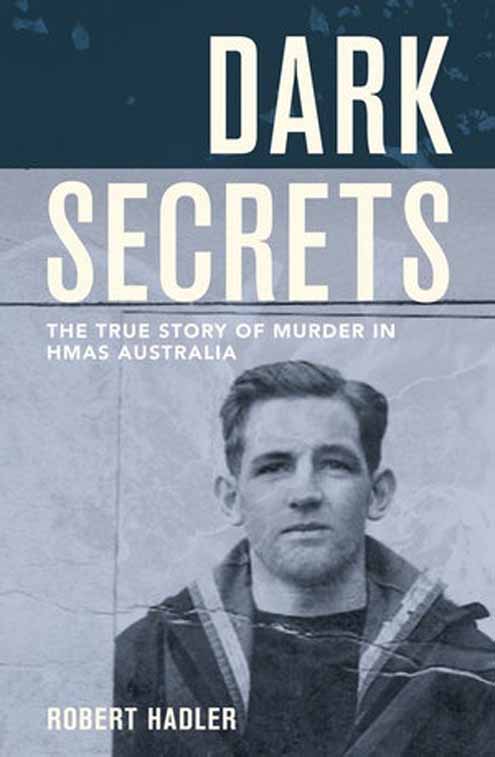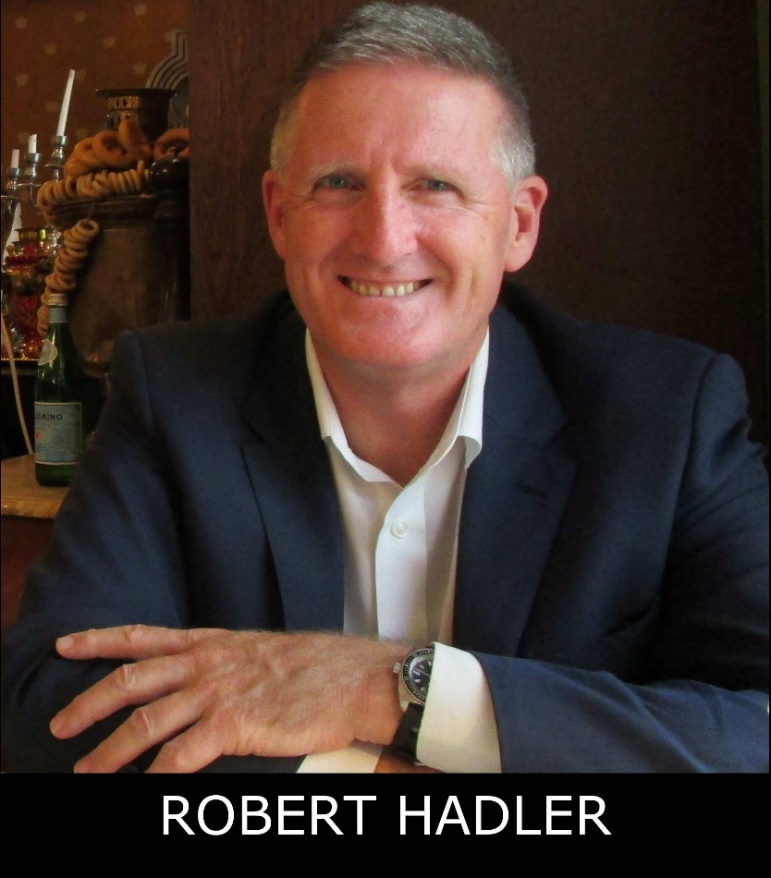In his presentation to an audience of 34, Robert Hadler, brought to life the tragic events surrounding to the murder, on 12 March 1942, of a lowly stoker Jack Riley by two other stokers, Ron Gordon and Ted Elias aboard HMAS Australia, the flagship of the Royal Australian Navy.

The Japanese had the allies on the run. Australia lost 23,000 men with the fall of Singapore in February and the Japanese looked invincible as their navy steamed south almost unchallenged. Australia was in grave danger.
As catastrophic as the events were for those involved, in the context of the war then waging around them in the Pacific, the murder was a small event. It was a fatal tussle between three below deck shipmates – a tussle that could be easily swept away by a fast trial, or so the captain thought. It wasn’t.
Improbably, this ‘little’ crime would have huge political ramifications. Ultimately King George VI became involved and after seven years would split Australia from Britain.
The military investigation and court martial were swift. There was no doubt about the bloody knife, the 14 stab wounds and the blood on the perpetrators caught at the scene of the crime. Problematically there was a suggestion that this was part of homosexual activity on board ship. A verdict was reached quickly without that embarrassing suggestion coming out. A verdict of guilty was soon handed down.
Unfortunately for the condemned, RAN was under the operational control of the Royal Navy at the start of the war. This meant all Australian sailors in Australian warships everywhere were subject to British naval law. Murder required the death penalty under British law but not in Australian law. The death sentence was passed.
The new Australian Labor Government opposed capital punishment. It came as a shock when they realised they had no control over the law on their own warships. No matter how hard they tried or how high they took the issue, their high-level diplomatic wrangling could not get the British to budge. In the meantime, the two culprits were repatriated to Australian prisons to await completion of the international diplomatic machinations.
Eventually the machinations led to an appeal to the King to resolve the stand-off. He commuted the death sentences to life imprisonment. It did not resolve the bigger wrangle over what laws to apply to Australian sailors on Australian ships operated by the British.
Attorney General, Bert Evatt in the new Labor government, was furious that Australia did not control the legal framework applied on its own ships. He decided to push the adoption the Statute of Westminster so Parliament could wrest control from the British. Given strong British loyalty amongst parliamentarians, it was a high-risk manoeuvre. Evatt succeeded. The effect went far beyond given back legal jurisdiction over Australian warships as Australia became legally independent of Britain.
While the convicts were now ‘safe’ in prison on home soil, Elias’s mother was not happy with their life sentence. She began a public campaign which brought in a Catholic Cardinal and an Anglican Bishop. The Bishop had powerful political connections back to Evatt, which in turn brought the Attorney General’s Department into the fray. The Navy Department wanted the prisoners to remain in prison for the term of their natural life while the Attorney General’s Department wanted them out. There were hearings on a political roundabout for years until finally the Attorney General’s Department got its way.
In 1950 the convicts were released. Elias married his pre-war girlfriend a week after release. Gordon married twice.
Hadler concluded that there is little doubt that Elias and Gordon murdered Riley but their post war marriages cast some doubt on the homosexual motive for the murder. The bottom line is, they did the crime and they served the time.
But who would have thought that such a seemingly ‘small’ event would have such huge implications involving so many high-level people with the result having such national and international significance?
About the presenter
http://www.roberthadler.com
Robert Hadler is a former award-winning economics journalist and foreign correspondent who also worked in the Commonwealth public service, as a political advisor, for industry and lobby groups and as a senior executive in some of Australia’s biggest companies. Since 2015, Robert has been a Non-Executive Director on Government, private and not-for-profit Boards. His passion is writing about Australian history, and in particular controversial events that sparked military, legal and political challenges and triggered reforms that changed the future direction of the nation.
Contact Brent D Taylor about this article.








